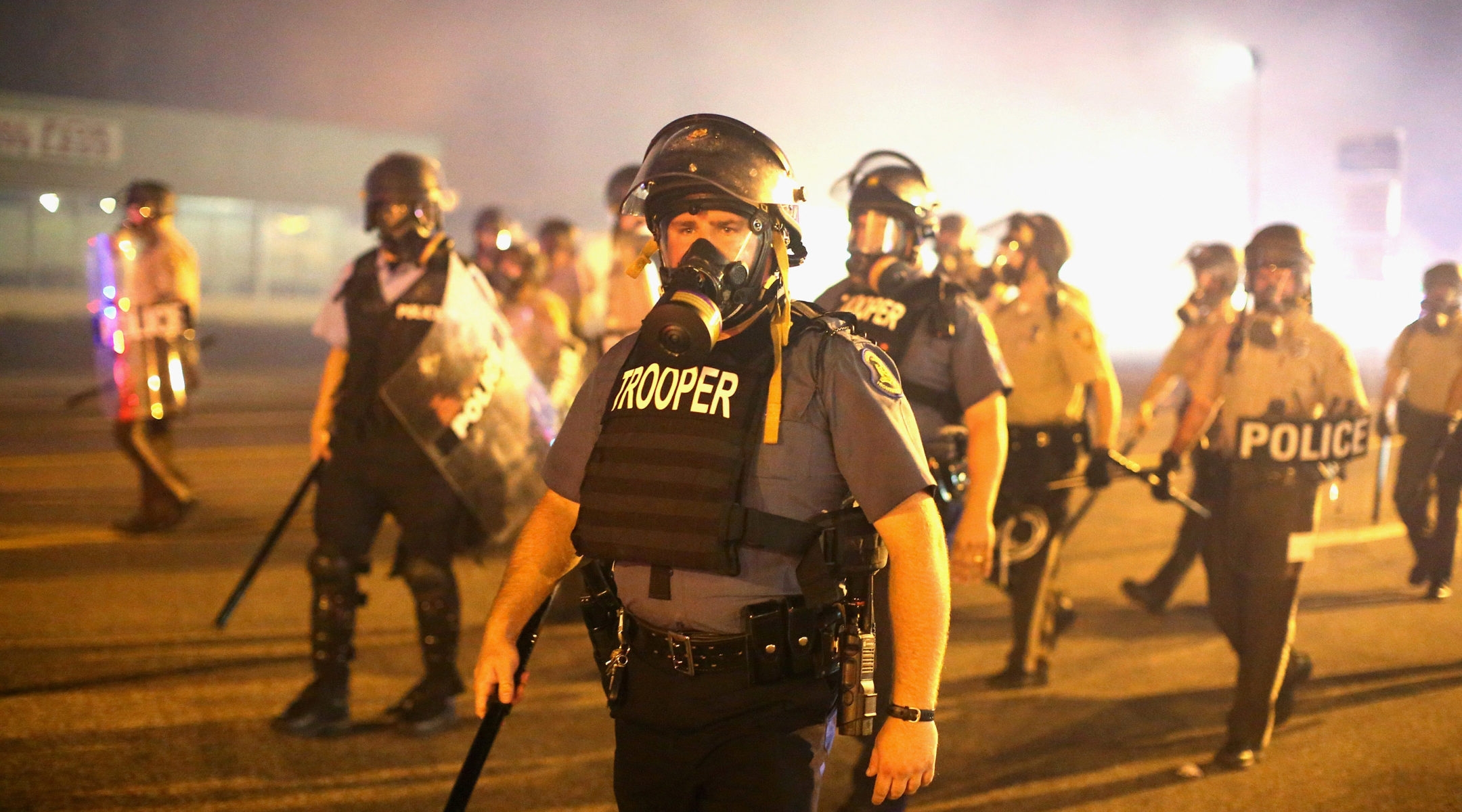A summer of global turmoil has culminated in nightmarish scenes from Ferguson, Mo., a St. Louis suburb torn apart by protests after the fatal shooting of Michael Brown, an unarmed black teenager.
For some, scenes of protesters attacked with tear gas and smoke bombs evoked another struggle: the Israeli-Palestinian conflict. Widespread concerns about the militarization of police, including the free exchange of weaponry between the military and U.S. police forces, were echoed by pro-Palestinian Twitter users, who made direct comparisons between treatment of Ferguson protesters by police and treatment of Palestinians by the Israel Defense Forces, the Times of Israel reported.
Dear #Ferguson. The Tear Gas used against you was probably tested on us first by Israel. No worries, Stay Strong. Love, #Palestine
— Rajai abuKhalilرجائي (@Rajaiabukhalil) August 14, 2014
Another Palestinian user, @MariamBarghouti, tweeted tips to Ferguson residents on how to cope with tear gas.
Solidarity with #Ferguson. Remember to not touch your face when teargassed or put water on it. Instead use milk or coke! — مريم البرغوثي (@MariamBarghouti) August 14, 2014
Journalist Glenn Greenwald, who rocketed to national fame after his cooperation with former NSA contractor Edward Snowden, posited a more direct link between Missouri police and the IDF.
He retweeted an ADL news release posted by Iranian activist Trita Parsi, which revealed that St. Louis County Police Chief Timothy Fitch had studied counterterrorism tactics in Israel.
“St. Louis County Police Chief, in 2011, on visiting Israel to learn about police tactics from the Israelis,” Greenwald added.
Greenwald’s statement drew ire from the Breitbart blog, which stated that “tying Israel to what is going on in Ferguson is so tangential that it borders on anti-Semitic paranoia.”
As Israeli-Palestinian cease-fire talks forge ahead in Cairo, the nightly violence in Ferguson continues unabated. Missouri Gov. Jay Nixon has called in the National Guard to try to quell the unrest.
In an interconnected world, in which outbreaks of violence continents away from each other unfold on our screens simultaneously, drawing parallels and patterns seems inevitable. Now that Nixon has called in an actual branch of the U.S. military, comparisons between Ferguson protesters and Palestinians — linked, on Twitter, via the hashtag “#oppressed” – are unlikely to let up. At least until the violence does.
JTA has documented Jewish history in real-time for over a century. Keep our journalism strong by joining us in supporting independent, award-winning reporting.






